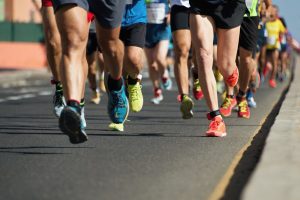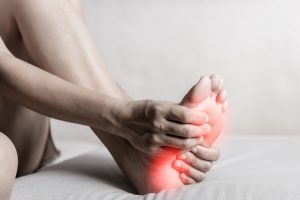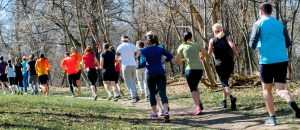If you are in the middle or towards the end of a training block for a half marathon, marathon or you’re delving into the ‘Ultra’ category, speeding up recovery after a long run is crucial for optimising performance and reducing the risk of injury.
The significance of recovery following a gruelling long run cannot be emphasised enough. Effective recovery strategies are important when it comes to any form of exercise to ensure peak performance and injury prevention.
Long runs such as half marathons, are strenuous on the body and therefore leaves your muscles fatigued, tissues strained and your body in need of restoration. By prioritising recovery, you can mitigate the risk of injury and conquer your training goals!
Here are some tips to help you recover optimally between runs:
- **Cool Down Properly**
After your run, spend 5-10 minutes doing a low-intensity activity such as walking or gentle jogging. This helps to gradually decrease your heart rate and prevent blood from pooling in your legs, which can aid in reducing muscle soreness.
- **Hydrate**
Rehydrate yourself with water or a sports drink containing electrolytes to replenish fluids lost during your run. Proper hydration is essential for muscle recovery and overall performance.
- **Refuel with Nutrition**
Consume a balanced meal or snack containing carbohydrates and protein within 30 minutes to an hour post-run. Carbohydrates help replenish glycogen stores, while protein aids in muscle repair and growth.
- **Stretching and Foam Rolling**
Perform gentle stretching exercises targeting the major muscle groups used during your run. Foam rolling can also help release muscle tension and improve circulation, aiding in faster recovery.
- **Compression Gear**
Consider wearing compression socks or sleeves during and after your run to improve blood flow and reduce muscle soreness.
- **Rest and Sleep**
Allow your body adequate time to rest and recover. Aim for 7-9 hours of quality sleep each night, as sleep is crucial for muscle repair and overall recovery.
- **Cross-Training**
Incorporate low-impact activities such as swimming, cycling, or yoga into your routine to maintain fitness while giving your running muscles a break.
- **Ice Bath or Cold Therapy**
Some athletes swear by ice baths or cold therapy to reduce inflammation and muscle soreness post-exercise. Consider immersing yourself in a cold bath or using ice packs on sore muscles for 10-15 minutes.
- **Listen to Your Body**
Pay attention to how your body feels and adjust your training accordingly. If you’re feeling excessively fatigued or experiencing pain, it’s important to rest and recover properly to prevent overtraining and injury.
- **Consistency**
Consistency is key! Incorporate these recovery strategies into your routine consistently to maximise their effectiveness and support long-term performance improvements. Try and ensure you add recovery time into your workout to make sure you can stay consistent.
For most people it will be impossible to complete all of these tips, so it’s important to find 4-5 that work for you and make them part of your routine. As Specialist Sports Physios, hydrate and re-fuel are a must for running recovery, so pick 2 or 3 more and try them, create a routine that fits your lifestyle, your body and your goals.
Remember that recovery is a crucial part of any training program and is just as important as the workouts themselves. By prioritising proper recovery techniques, you can enhance your running performance and reduce the risk of injury.
If you need some guidance and a tailored plan, speak with one of our Specialist Sports Physios!
Author: Christopher Hedges, Pure Physio Sports Lead (South) and Specialist MSK Physiotherapist
References :
- Goston R. et al (2022). The Effect of Carbohydrate Diets on Amateur Runners’ Performance. Journal of Sports Research. 9. 57-66. 10.18488/90.v9i2.2993.
- Harbour E. Stöggl T. Schwameder H. Finkenzeller T. (2022) Breath Tools: A Synthesis of Evidence-Based Breathing Strategies to Enhance Human Running Frontiers Physiology Mar 17;13:813243. doi: 10.3389/fphys.2022.813243. PMID: 35370762; PMCID: PMC8967998.
- Nicolas M. Banizette M. Millet G. (2011) Stress and recovery states after a 24 h ultra-marathon race: A one-month follow-up study, Psychology of Sport and Exercise, Vol 12 (4) 368-374, ISSN 1469-0292, https://doi.org/10.1016/j.psychsport.2011.03.005.
- Tanous D, Wagner KH, Leitzmann C, Motevalli M, Wirnitzer G, Rosemann T, Knechtle B, Wirnitzer K. Dietary Intake of Recreational Endurance Runners Associated with Race Distance-Results from the NURMI Study (Step 2). Nutrients. 2022 Sep 7;14(18):3698. doi: 10.3390/nu14183698. PMID: 36145075; PMCID: PMC9503531.
- van Iperen, L. P., de Jonge, J., Gevers, J. M. P., Vos, S. B., & Hespanhol, L. (2022). Is self-regulation key in reducing running-related injuries and chronic fatigue? A randomized controlled trial among long-distance runners. Journal of Applied Sport Psychology, 34(5), 983–1010. https://doi.org/10.1080/10413200.2021.2015479
- Wan JJ, Qin Z, Wang PY, Sun Y, Liu X.(2017) Muscle fatigue: general understanding and treatment. Exp Mol Med. Oct 6;49(10):e384. doi: 10.1038/emm.2017.194. PMID: 28983090; PMCID: PMC5668469.
- Wiewelhove T, Schneider C, Döweling A, Hanakam F, Rasche C, Meyer T, Kellmann M, Pfeiffer M, Ferrauti A. (2018) Effects of different recovery strategies following a half-marathon on fatigue markers in recreational runners. PLoS One. Nov 9;13(11):e0207313. doi: 10.1371/journal.pone.0207313. PMID: 30412626; PMCID: PMC6226207.







